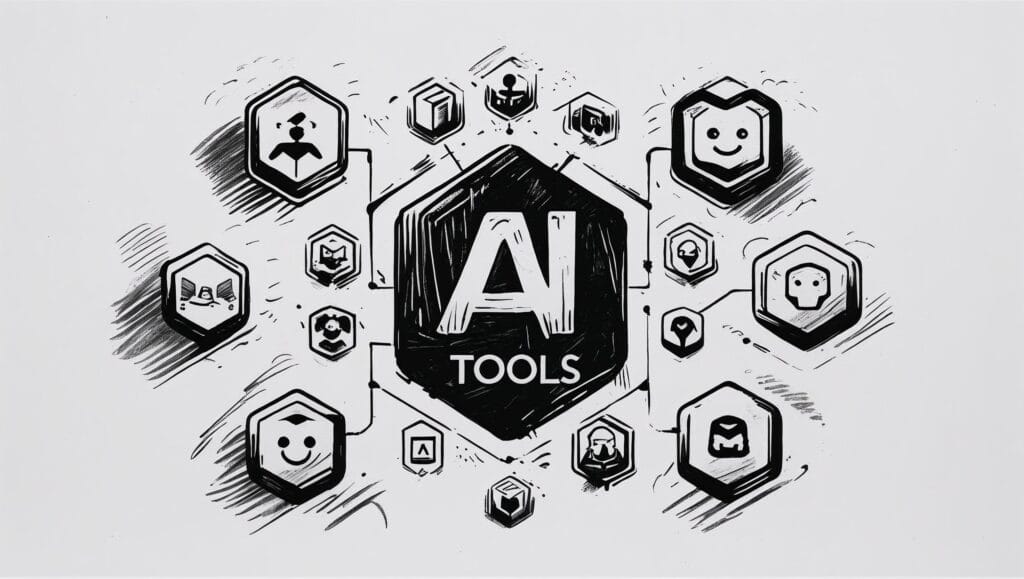Unlock the Best AI Tools for Your Business Growth

Artificial Intelligence (AI) has moved beyond being a buzzword. It is now a critical driver of efficiency. It also drives growth and innovation. Whether you run a small startup or manage a mid-sized company, selecting the right AI tools is essential. Being part of a large enterprise also requires the right selection. These tools should be tailored to your business size. The right choice can help you streamline operations. It can improve customer engagement. It can increase profitability. In contrast, the wrong one can waste resources and stall progress.
In this guide, we’ll break down the best AI solutions by business size. We will provide real-world examples. We will show you exactly how to choose tools that align with your goals.
Why Business Size Matters in AI Selection
Your business size dictates your operational needs, budget, and scalability requirements. A small business may prioritize affordability. It also values ease of use. A large enterprise often looks for customization. It seeks advanced analytics and integrations across departments.
- Small businesses need cost-effective, plug-and-play AI solutions that don’t require a dedicated IT department.
- Mid-sized businesses benefit from scalable platforms with stronger analytics and integration features.
- Large enterprises often require enterprise-grade AI systems with robust security, compliance, and automation at scale.

AI Tools for Small Businesses
Small businesses typically operate with lean teams and tight budgets. The goal is to leverage AI tools that deliver maximum impact with minimal setup.
1. Marketing & Customer Engagement
- Mailchimp’s AI-powered recommendations (Mailchimp): Helps small businesses send optimized emails and predict customer preferences.
- HubSpot AI Tools (HubSpot): Simplifies lead tracking, CRM, and content personalization without heavy technical knowledge.
2. Content Creation
- Canva’s AI design tools (Canva): Perfect for creating professional graphics quickly.
- Jasper AI (Jasper): Generates blog posts, ad copy, and email content tailored for small business marketing campaigns.
3. Customer Service
- Tidio (Tidio): Combines chatbots and live chat to respond instantly to customer queries.
- Zoho Desk (Zoho): Offers AI-driven ticket routing and customer insights.
Pro Tip: For small businesses, focus on tools that save you time. Prioritize automation. It is more valuable here than advanced analytics.
AI Tools for Mid-Sized Businesses
Mid-sized companies typically have more resources and teams, requiring scalable AI platforms that connect across departments.
1. Sales & Marketing Automation
- Salesforce Einstein (Salesforce): Delivers predictive analytics, lead scoring, and automation to boost sales efficiency.
- Marketo Engage by Adobe (Adobe): Provides advanced marketing automation and AI-driven personalization.
2. Data Analytics
- Tableau with AI Insights (Tableau): Enables real-time data visualization enhanced with AI forecasting.
- Microsoft Power BI AI Tools (Microsoft): Connects business intelligence with predictive models.
3. Human Resources & Productivity
- BambooHR with AI analytics (BambooHR): Automates HR workflows and provides data-driven employee insights.
- Monday.com with AI integrations (Monday): Uses AI to optimize project management and resource allocation.
Pro Tip: Mid-sized companies should prioritize integration — ensure your AI tools work together across sales, marketing, finance, and HR.
AI Tools for Large Enterprises
Enterprises deal with massive data, complex compliance requirements, and global operations. They require AI tools that deliver customization, security, and cross-platform scalability.
1. Enterprise-Grade Data & Analytics
- IBM Watson (IBM): Offers advanced natural language processing, data analytics, and AI model training for complex industries.
- Google Cloud AI Platform (Google Cloud): Provides large-scale machine learning, automation, and big data insights.
2. Supply Chain & Operations
- SAP Leonardo AI (SAP): Integrates AI into logistics, finance, and operations.
- Oracle AI Solutions (Oracle): Streamlines enterprise resource planning with intelligent automation.
3. Customer Experience
- Adobe Sensei (Adobe): Delivers AI-driven personalization in digital customer journeys.
- Zendesk AI (Zendesk): Provides enterprise-level support automation with advanced ticket analysis.
Pro Tip: Large enterprises must focus on compliance, security, and global scalability when choosing AI platforms.
Key Factors to Consider When Choosing AI Tools
Regardless of business size, there are critical factors to evaluate before investing in AI:
- Ease of Integration – Does the tool connect seamlessly with your existing platforms?
- Scalability – Can the tool grow as your business expands?
- Cost vs ROI – Will the savings or revenue gains justify the investment?
- Support & Training – Does the vendor provide adequate onboarding and troubleshooting?
- Data Security & Compliance – Especially important for industries like healthcare, finance, and legal.
Case Study Examples
- Small Business Success: A boutique e-commerce shop used Tidio chatbots to reduce customer response times by 70%, boosting conversions.
- Mid-Sized Business Growth: A marketing agency implemented Salesforce Einstein, improving lead conversion rates by 34% through predictive scoring.
- Enterprise Transformation: A global manufacturer adopted SAP Leonardo AI to optimize its supply chain, saving millions in operational costs annually.
Final Thoughts: Matching AI Tools to Business Size
Choosing the right AI tools is not about picking the most popular platform. It’s about selecting solutions aligned with your specific size, budget, and strategic goals.
- Small businesses should focus on plug-and-play, cost-effective automation.
- Mid-sized businesses need scalable platforms with deeper analytics and integrations.
- Large enterprises must invest in enterprise-grade AI with compliance and global reach.
Tailoring your AI investments to your business size maximizes ROI. It also improves efficiency and sets the foundation for long-term growth.
Subscribe for marketing and tech tips.

